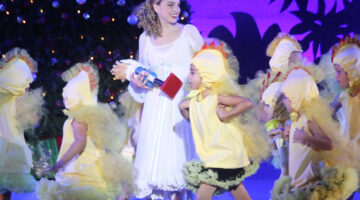IT’S YOUR ENVIRONMENT
Please don’t feed the pelicans: Winter migration is a challenge for birds in the keys
BY ROBYN MAYER
KONK LIFE STAFF WRITER
Winter is a very busy season for migration in the Keys for many birds heading south.
Hawks, pelicans, cormorants, herons and other birds face environmental difficulties, especially when they are youngsters migrating for the first time. Many of these birds are on the endangered species list in Florida and are hindered further by human interference. When people try to feed these birds, or prevent them from feeding on their natural food sources, they put these birds in even further danger.
Staff and volunteers at The Key West Wildlife Center are asking for help from residents to make winter migration more successful.
The Wildlife Center’s mission is to ensure the future of our diverse native wildlife by providing timely rescues and quality rehabilitation with the hope of release back into the wild.
The center rescues birds every day from Key West to Mile Marker 15, but vigilance of locals will help reduce the stress on the birds.
“We are in the thick of hawk season and just getting into pelican season,” said Thomas Sweets, the center’s executive director. “This is our busiest time of year, kind of opposite of up north.”
When I visited the center, there were several pelicans, a broad-wing hawk, a merlin, a kestrel and sandwich terns in the clinic, where birds that have recently received medical attention recuperate. When an injured or sick bird first arrives, the staff checks it and treats it for parasites, deworms it, feeds it and rehydrates it.
Most birds brought in suffer from dehydration and malnourishment, but others come in with broken bones. Some bones can be set in the clinic, but if a bird needs surgery or a specialized treatment, Sweets takes it to the Marathon Veterinary Hospital or to Dr. Thomas Householder of Key West Vets and Pets, who volunteers his services to help the ailing birds.
Once birds graduate from the clinic area, they are sent to aviary, large cages where they can recuperate and gain strength with room to stretch their wings.
One of the center’s main concerns is that people avoid feeding pelicans. It is illegal to feed pelicans and it interferes with their migration patterns and their ability to survive in the wild.
“Don’t interfere with hawks that are hunting and don’t feed the pelicans,”
pleads Peggy Coonts, the center’s animal care director, a wildlife biologist who has been working as a rehabilitator most of her life.
If a bird gets used to finding food too easily, it will take the easy route and just wait to be fed instead of learning to hunt. It may stop migrating entirely, which also interferes with breeding.
“Almost every bird that comes through here is a first-year migrator,” Coonts noted. These birds are not yet skilled in hunting or migrating, and often get into trouble.
Pelicans may eat things that are bad for them, such as fileted fish with bones or whole fish over 8 inches long. Eating a fish with exposed bones or a whole fish that is too big can kill it.
The wildlife center responds to calls for rescue 24 hours a day. Sweets or Coonts respond very quickly to these calls any time of day or night. To report an injured or sick animal, call 303-292-1008.
The Wildlife Center is located on the grounds of the Charles “Sonny” McCoy Indigenous Park. It is an upland scrub habitat that contains about 75 species of plants native to the Keys and about a dozen that can be found only in the Keys and is also a bird sanctuary. Visit the website at keywestwildlifecenter.org
Tips for protecting wild birds:
- Pelicans cannot digest bone-in fish carcasses or whole fish over eight inches
- Pelicans’ wild behavior is altered by feeding and they will look to human beings for food instead of hunting
- Pelicans being fed from marinas will stop migrating and beg year-round
- Dispose of all fish waste and carcasses in trash cans
- Do not dispose of fish waste in the water
- Do NOT toss fish scraps or fillets to pelicans or any wild birds
- Report pelican feeding violations to the FWC at 888-404-3922







No Comment